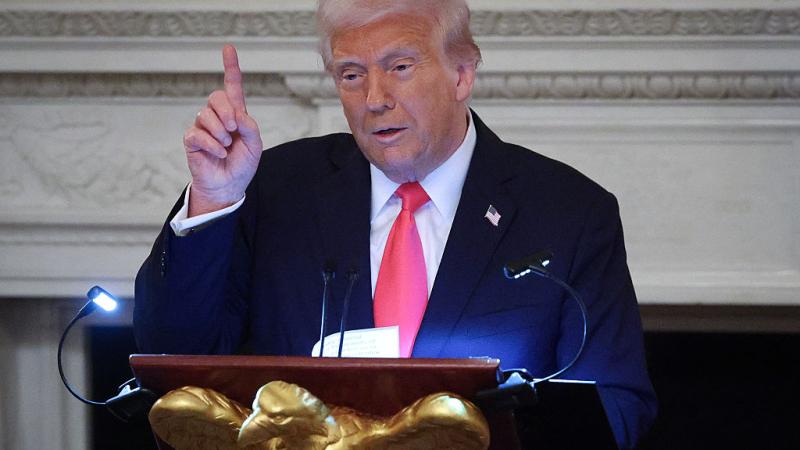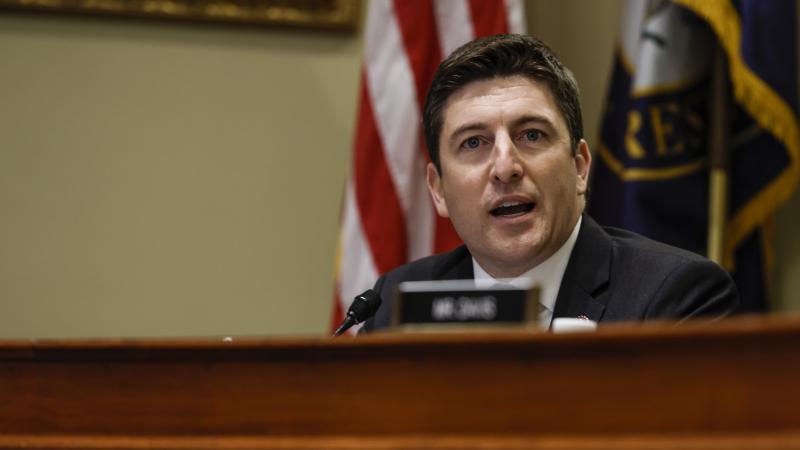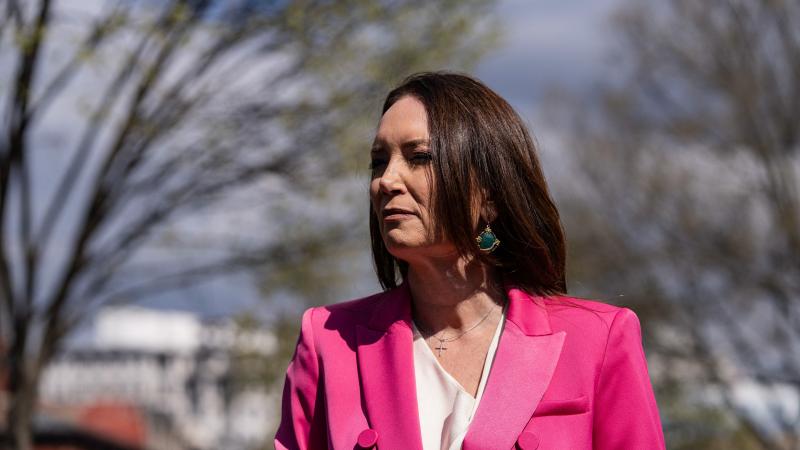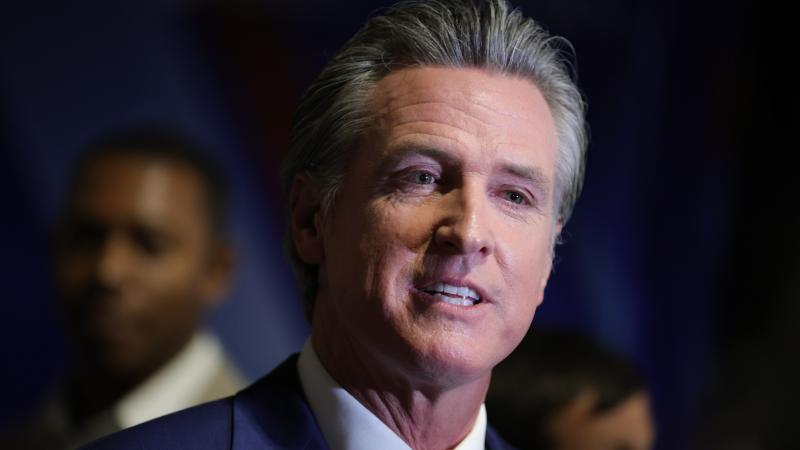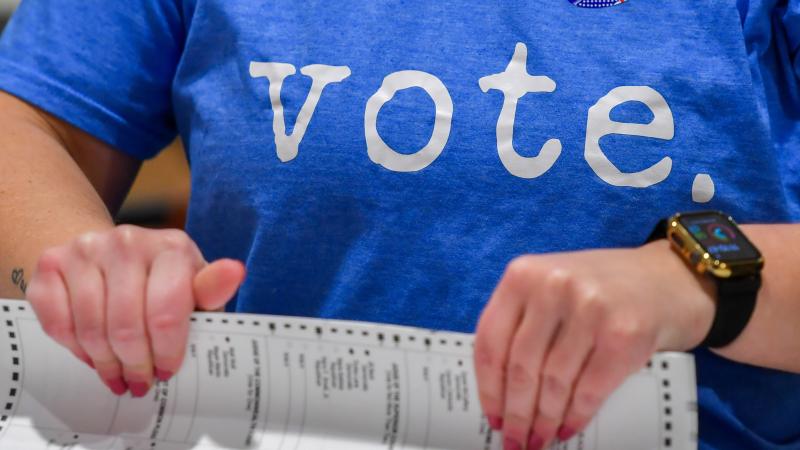Idaho National Guardsman fights for job after probe into his religious, political speech
Requiring Major David Worley to “pack his religious beliefs away is unconscionable and a violation of the First Amendment,” his attorney said.
A member of the Idaho Army National Guard has filed a lawsuit to prevent his separation from the military after being investigated for religious and political speech he made as a private citizen.
Major David Worley, an infantry officer in the Idaho Army National Guard, is suing Idaho Gov. Brad Little (R), as Adjutant General of the Idaho National Guard Major General Timothy Donnellan, and Assistant Adjutant General of the Idaho Army National Guard Brigadier General James Packwood so he can remain in the military. Worley, who has served in the Army National Guard for over 22 years, has been told he will be separated from the military after an investigation into speech that his legal team believes is protected by the First Amendment.
Worley’s orders to serve as the commander of the Idaho Army National Guard Recruiting and Retention Battalion began on July 1st, 2023. His first day of work was July 5th, and “his unit had its pre-drill meeting with full-time staff” on July 7th, according to the federal lawsuit. During that meeting, Worley met the Sergeant First Class who filed a complaint against him on July 13th.
The complaint “alleged that Major Worley discriminated against the Complaining Guardsman due to his alleged sexual orientation, and that Major Worley (in the six days he was in command) had created a hostile work environment for the allegedly offended Complaining Guardsman,” per the lawsuit.
“The sole factual predicates of the EO Complaint against Major Worley were the press reports of Major Worley’s opposition to Drag Queen Story Hour and the pornography, obscenity, and other inappropriate materials for minors in the public library, and Major Worley’s speech on religious and moral issues that he gave as part of his political campaigns when he ran for elected office,” the court filing reads.
Worley ran for mayor of Pocatello, Idaho, in 2021, and for Idaho State Senate in 2022.
On July 18th, Worley was “ordered him into a meeting in which he was forced to choose between signing a ‘voluntary resignation’ or facing significant investigations and punishments,” according to the lawsuit.
Worley’s command did not afford him his due process rights, “denied his right to legal counsel, did not follow Department of Defense procedures, and ignored the requirement to provide Major Worley with a reading of his Article 31 rights,” per the lawsuit.
“Under duress, Major Worley capitulated but immediately rescinded that impermissible procedure upon the advice of counsel and the swift realization that capitulation in the face of blatant injustice would be a stain on his honor and a betrayal of his faith,” the court filing reads.
R. Davis Younts, one of Worley’s attorneys, told Just the News on Friday that Worley “only resigned because they said he'd be fired if he consulted with counsel.” After consulting counsel, Worley pulled his resignation, which the Guard accepted.
Liberty Counsel Associate Vice President of Legal Affairs Daniel Schmid, who is representing Worley in the federal lawsuit, told Just the News on Monday that “his command knew about” the social media posts that the complainant mentioned because Worley had previously disclosed them. The posts were “not an issue until a subordinate identifying as homosexual filed the complaint,” he added.
Requiring Worley to “pack his religious beliefs away is unconscionable and a violation of the First Amendment,” Schmid said.
Worley was suspended during the course of the investigation, which took about 18 months. The investigating officer released his findings in May 2024. Then, Packwood reviewed the findings and released his own in September. In December, Packwood released his formal findings and reprimanded “Worley for asserting his rights in the investigation into his religious exercise and comments he made during the course of that unconscionable investigation,” according to the lawsuit.
Worley responded to the reprimand just before the lawsuit was filed in federal court earlier this month.
The suspension meant that Worley was “not permitted to drill, and could not acquire points,” which are necessary for promotions and retirement, Schmid said.
The court can order that Worley be given points, but “it's a legal fiction” that he can be fully restored “because he can't get back that time,” he explained.
Schmid said that they had reached out to the governor before the lawsuit to ask for his intervention, but “he said ‘no.’”
The Idaho governor’s office didn’t respond to a request for comment.
“On December 12, Major Worley was informed that he was to be permanently separated from active duty with the Idaho National Guard, effective within thirty days of the finalization of the paperwork,” according to the lawsuit. “This separation will result in the loss of his livelihood and the ability to acquire points and promotions. It will also severely limit his ability to receive full-time military employment in the future.”
The lawsuit is to prevent the Idaho National Guard from separating Worley based on First Amendment protections, “then a longer road to restore him to where he should’ve been all along,” Schmid said.
The Idaho National Guard has “demonstrated a clear hostility to him because of his religious beliefs,” Younts said of Worley.
The investigating officer also recommended a policy be adopted “to ferret out ‘extremists’ in the military by looking at the social media profiles of potential command candidates to make sure there is no ‘concerning information’ about them, to determine how those candidates portray themselves publicly, to make sure the candidate would be supportive of a ‘diverse’ groups of subordinates, and to get ‘the full picture’ of the candidate’s beliefs, views, and public expression, including whether they had any ‘concerning ideologies,’” according to the lawsuit.
Packwood agreed with the recommended policy and “affirmed the need to scrutinize potential candidates for command to ensure that their Christian beliefs, views, or expression are discovered prior to be given command and reported to the Department of Defense for investigation of concerning extremist activity,” the lawsuit reads.
The policy that was recommended has not been implemented, but in the investigation, the “Army’s anti-extremism policy” was cited, Younts said, which is “used by states like Idaho to attack Christians” unless the Trump administration revokes it.
However, regarding “all of the bases that formed the Complaining Guardsman’s EO Complaint against Major Worley, Brigadier General Packwood found each claim to be unsubstantiated,” according to the lawsuit.
“In other words, there was no basis to even begin the investigation into Major Worley for his religious views and expression. Nevertheless, despite finding all claims by the Complaining Guardsman to be unsubstantiated and lacking in evidence, Brigadier General Packwood concluded that Major Worley engaged in counterproductive leadership,” the court filing continues.
A public affairs officer for the Idaho National Guard told Just the News on Friday that the “Idaho Military Division hasn’t made any policy modifications” regarding this issue, as the “whole situation” is “still in process.”
“We’ll let the process play out, and if necessary, make an assessment of our policy,” he explained. The policy recommendations have not been implemented, and it is up to the “command’s prerogative whether they adopt those. They’ve thus far chosen not to.”
The spokesperson added that Worley is “still fully employed, hasn’t lost his rank, and is receiving full pay and benefits.”





